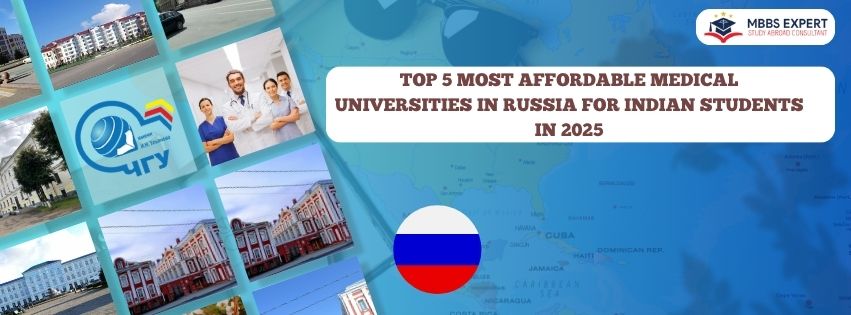Budget-Friendly Medical Education in Russia: Affordable Universities for Indian Students Introduction Pursuing a medical degree…
Healthcare System in Timor-Leste: What Indian Students Need to Know
![]()
Healthcare System in Timor-Leste: What Indian Students Need to Know
In recent years, Timor-Leste has emerged as a destination of interest for Indian students pursuing higher education in various fields. With its rich cultural tapestry, breathtaking landscapes, and a growing economy, this Southeast Asian nation offers a unique blend of academic opportunities and cultural experiences. However, one aspect that often warrants attention, especially for prospective students in the healthcare sector, is understanding Timor-Leste’s healthcare system.
Timor-Leste, a young nation nestled between Indonesia and Australia, has made significant strides in rebuilding its healthcare infrastructure since gaining independence in 2002. The healthcare system in Timor-Leste comprises both public and private sectors, with efforts focused on improving accessibility and quality of care for its citizens.
For Indian students considering studying medicine or healthcare-related disciplines in Timor-Leste, it’s essential to grasp the key features of the country’s healthcare landscape.
Firstly, Timor-Leste faces unique challenges stemming from its history of conflict and limited resources. Despite ongoing efforts to strengthen healthcare services, the nation continues to grapple with issues such as inadequate infrastructure, shortages of medical supplies, and a shortage of skilled healthcare professionals. As such, Indian students should be prepared to adapt to a dynamic and often challenging healthcare environment.
Secondly, Timor-Leste’s healthcare system is primarily funded by the government, with assistance from international aid organizations and non-governmental organizations (NGOs). While public healthcare services are available to all citizens free of charge, the quality and availability of care vary across different regions of the country. Indian students should familiarize themselves with the healthcare facilities available in their area of residence and be prepared to navigate potential challenges in accessing care.
Thirdly, cultural factors play a significant role in shaping healthcare practices and beliefs in Timor-Leste. Traditional medicine and healing rituals are deeply ingrained in the country’s cultural heritage, alongside modern medical practices. Indian students studying healthcare in Timor-Leste may encounter patients who prefer traditional remedies or seek guidance from traditional healers, highlighting the importance of cultural sensitivity and understanding in delivering patient-centered care.
Moreover, language barriers can pose challenges for Indian students interacting with patients and healthcare professionals in Timor-Leste. While Tetum and Portuguese are the official languages, English proficiency varies among the local population. Indian students may need to invest time and effort in learning the local language to effectively communicate with patients and collaborate with healthcare teams.
Despite these challenges, studying healthcare in Timor-Leste offers Indian students a unique opportunity to gain valuable insights and hands-on experience in a diverse and rapidly evolving healthcare landscape. By immersing themselves in the local culture and community, students can deepen their understanding of global health disparities and contribute meaningfully to improving healthcare outcomes for underserved populations.
Furthermore, Indian students can leverage their academic training and expertise to support initiatives aimed at strengthening Timor-Leste’s healthcare infrastructure. Whether through research projects, community outreach programs, or clinical rotations, students can make a tangible difference in addressing the healthcare needs of the local population.
As Timor-Leste continues to evolve and develop, the role of Indian students in shaping its healthcare landscape is poised to become increasingly significant. By fostering collaboration, innovation, and cross-cultural understanding, students can play a pivotal role in building a healthier and more resilient future for all residents of Timor-Leste.
Moreover, the journey of Indian students studying healthcare in Timor-Leste extends beyond the classroom and clinical settings. It encompasses a profound exploration of cultural exchange and mutual learning. As students immerse themselves in the local way of life, they have the opportunity to forge meaningful connections with people from diverse backgrounds and gain insights into the social determinants of health.
Understanding the socio-economic factors that influence health outcomes in Timor-Leste is integral to delivering effective healthcare interventions. Indian students can contribute to this understanding by engaging in community-based research projects and initiatives aimed at addressing prevalent health issues, such as infectious diseases, maternal and child health, and non-communicable diseases.
Furthermore, the experience of studying healthcare in Timor-Leste fosters resilience, adaptability, and a global perspective among Indian students. They learn to navigate complex healthcare systems, overcome language barriers, and collaborate with multidisciplinary teams to deliver patient-centered care in resource-limited settings. These skills are invaluable assets that prepare students for diverse career paths in the field of healthcare, both domestically and internationally.
As ambassadors of their home country, Indian students also have the opportunity to showcase the rich diversity and expertise of the Indian healthcare system. By sharing their knowledge, cultural traditions, and best practices, they contribute to a vibrant exchange of ideas and foster cross-cultural understanding among their peers and colleagues in Timor-Leste.
Additionally, the experience of studying healthcare in Timor-Leste empowers Indian students to become advocates for global health equity and social justice. They gain firsthand insights into the challenges faced by marginalized communities and the systemic barriers that perpetuate health disparities. Armed with this knowledge, students are inspired to champion policies and initiatives that promote universal access to quality healthcare and address the root causes of health inequities on a global scale.
In conclusion, the journey of Indian students studying healthcare in Timor-Leste is characterized by exploration, discovery, and transformation. It is an opportunity to not only acquire academic knowledge and clinical skills but also to cultivate empathy, cultural competence, and a sense of global citizenship. As students navigate the intricacies of Timor-Leste’s healthcare system, they become catalysts for positive change, driving innovation, collaboration, and equitable healthcare delivery for all. Through their collective efforts, Indian students contribute to building a brighter and healthier future for the people of Timor-Leste and beyond.





